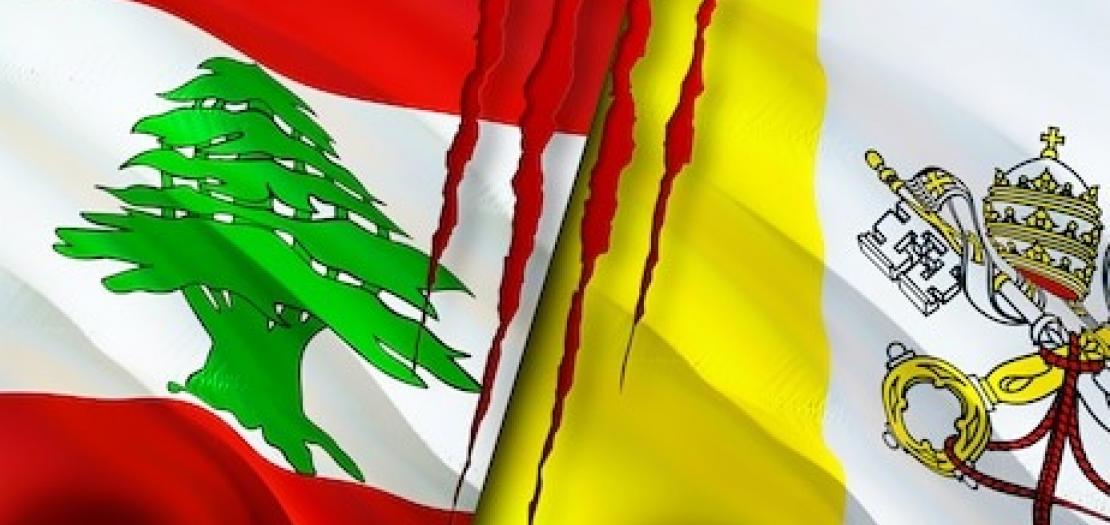Issued by the Catholic Center for Studies and Media - Jordan. Editor-in-chief Fr. Rif'at Bader - موقع أبونا abouna.org
Lebanon is at the heart of the Vatican's interest
The diplomatic relations between Lebanon and the Holy See were launched in November 1946, when Lebanon opened a diplomatic mission with Mr. Charles Helou named as the first minister plenipotentiary. He presented his credentials to Pope Pius XII on March 17, 1947, and the diplomatic mission was transformed into an embassy on June 2, 1953. However, the Vatican's interest in Lebanon is not only diplomatic, but rather spiritual, social, and cultural as well as involving dialogue. The Eastern Catholic Churches have been present in Lebanon for hundreds of years. The most important of these churches are the Maronite, Syriac, Armenian and Roman Catholic Churches. They have administrative relationship with the Vatican, as they follow the directives of the Pontiff in the Holy See and their bishops are appointed through a special synod and with the approval of the Pope. However, for the Catholic Church, Lebanon "is more than just a homeland, it is a message." This term was coined by Pope John Paul II, who on September 7, 1989, and in a general message to all the bishops of the Catholic Church, about the situation in Lebanon. He articulated his famous sentence, namely “Lebanon is more than a country. It is a message of freedom and an example of pluralism for East and West." He also visited Lebanon on May 10, 1997 and issued his Post-Synodal Apostolic Exhortation titled, “A New Hope for Lebanon." In 2012, Pope Benedict XVI visited Lebanon and signed his Apostolic Exhortations titled, "The Catholic Church in the Middle East: Communion and Witness" in which he called for the application of the principle of citizenship and equality altogether, rather than just talking about tolerance, coexistence and other terms that we find on the pages of constitutions while lacking practical application. In the wake of tragic Beirut explosion which took place a month ago, Pope Francis dispatched Vatican Secretary of State Cardinal Pietro Parolin to Lebanon who expressed his firm solidarity with the families of the victims, with the wounded, and with the citizens who lost their homes and jobs. He also visited a number of damaged areas and met with several afflicted families. Furthermore, he met with the patriarchs of the Catholic Churches, with representatives of the various religions, and "sects" in Lebanon. Wherever he went, he used to say: "Lebanon is not alone and we stand with you in an expression of solidarity and love." The second man in the Vatican said, "Lebanon is not alone, and we silently stand with you in an expression of our love and solidarity. Lebanon should not be left alone, for as Lebanon needs the world so does the world needs Lebanon's unique experience in solidarity and freedom. We will together rebuild Beirut." Therefore, it is a humanitarian message that Pope Francis wanted to send to Lebanon. He neither seeks political interference, nor does he seek to name future political leaders. His main concern is preserving the "message" of Lebanon, and maintaining solidarity with its suffering people who aspire to build a future free from corruption in all its forms including mysterious explosions. +abouna.org@gmail.com







